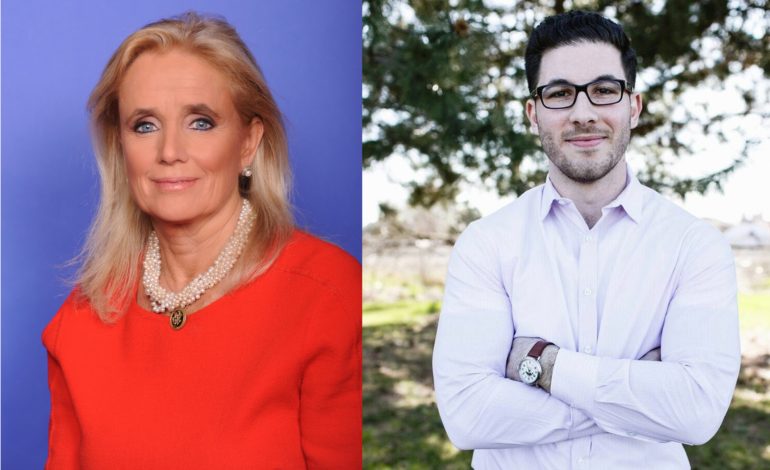DEARBORN — Emgage, a non-profit organziation that promotes Muslim political and civic engagement, hosted an online town hall meeting on Friday April 7, featuring U.S. Rep. Debbie Dingell (D-Dearborn) and state Rep. Abdullah Hammoud (D-Dearborn), to discuss federal and state government responses to the COVID-19 outbreak in Michigan.
Emgage Michigan Executive Director Nada Al-Hanooti moderated the event, in which both Dingell and Hammoud took time to respond to members of their constituencies around the direct economic and health impact topic of the outbreak. Such virtual town-halls have now become routine for legislatures since the cases in the U.S. have reached critical numbers.
“Our most important job right now is to kill this invisible enemy,” said Dingell, who herself has been working from home for nearly 20 days now. “That means we all have to do our part and we have to worry about people’s health.
“We are in a hotspot. We are third in the country right now for both COVID-19 cases and COVID-19 deaths.”
Dingell criticized the federal government’s response, saying the national stockpile of personal protective equipment (PPE) and other medical supplies was not ready and that healthcare legislation passed in the House itself was not enough to protect frontline healthcare workers. Republicans and Democrats are now scrambling to get basic PPE to these workers to meet the current shortage.
Dingell said getting access to simple things like the elastic material used to make masks has been a challenge. The federal government has spent millions of dollars on transportation for items like masks from China alone. Besides the importance of healthcare policy during this crucial time, Dingell said legislation in the House has also been focused on getting the economy back up and running. She referred to job losses in her own district, such as the laying off of 1,200 Henry Ford Museum employees.
“We added $600 to the already existing formula for your unemployment amount and have extended it by six weeks,” Dingell said. “We have a staggering number of people that have applied for unemployment and the state system has crashed several times, but everyone’s going to get their checks.”
The latest stimulus bill from the federal government has funds for employers, both large and small, and added liquidity for hospitals. Further details on this employer funding and how to apply for it will be issued this week.
We added $600 to the already existing formula for your unemployment amount and have extended it by six weeks. We have a staggering number of people that have applied for unemployment and the state system has crashed several times, but everyone’s going to get their checks. — U.S. Rep. Debbie Dingell
State-wide efforts
Hammoud said Michigan’s legislature has passed $150 million to provide Governor Whitmer the leeway to use resources and assist critical healthcare workers. He clarified that Whitmer’s latest executive order declaring a state of emergency means she does not have approval of the legislature at every step of response. It does not mean the “stay home” order is extended by 70 days, as some have presumed. That would have to come from a separate order.
Michiganders only need to apply for unemployment through the state’s website once to get both the state benefit and federal level benefit: Michigan.gov/UIA. The federal stimulus package also expands benefits to self-employed and gig economy workers.
Due to a recent move, the state of Michigan now has access to almost $350 billion in loan money for small businesses affected by the outbreak, through a paycheck protection program. These loans have to be used to ensure employees are kept on the payroll and may be forgiven in the future if all employees are kept on payroll for eight weeks and the money is used for payroll, rent, mortgage interest or utilities.
Plight of undocumented workers during the pandemic
Dingell touched on her and some of her colleagues’ struggle to convince Republicans that undocumented workers and communities are under an unprecedented threat during this time. The federal stimulus bill relies on information from previous years’ taxes to determine how the $1,200 stimulus checks will be given out.
“If someone has paid taxes, they are in the system differently than how…some other people are in it,” Dingell said. “There are a lot of people that are scared, that need help with food, health and shelter — let’s be honest, the Republicans are not going to let us, I don’t want to be political right now, we need everyone with us in fighting against this invisible virus.”
For now, local organizations like Zaman and Gleaners are providing resources to immigrant communities who may not qualify for federal or state assistance programs.






Leave a Reply